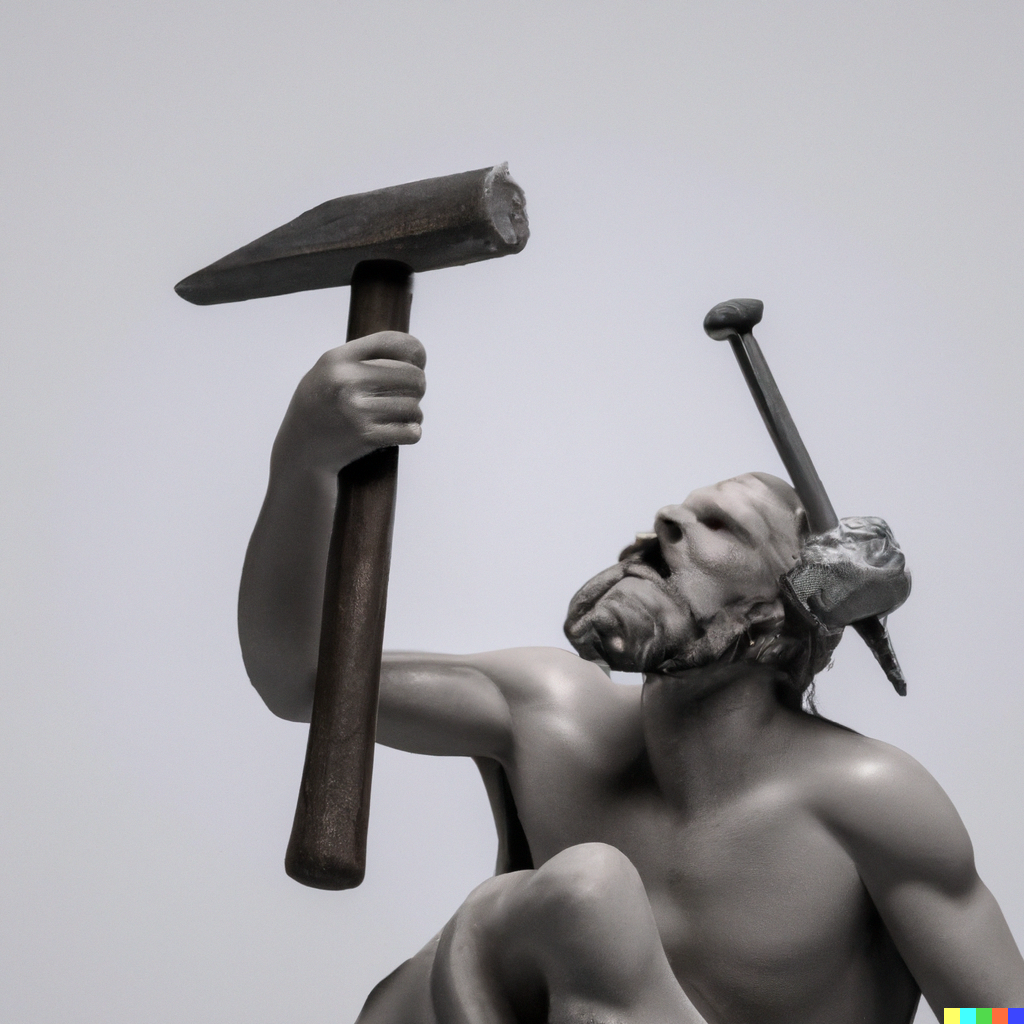3 minutes
One Dumbass Tool to Rule Them All
Plato: Greetings, Homer, wise in the ways of technology! I, Plato, am a fervent advocate of wielding a diverse set of tools in the pursuit of crafting digital wonders.
Homer: Hey there, Plato! I’ve been using this one tool for as long as I can remember. It’s like my trusty ol’ donut – reliable and delicious.

Plato: Ah, Homer, your analogy is as delightful as a philosopher’s discourse at the agora. But consider this: just as a philosopher seeks knowledge from various sources, a developer should draw from an array of tools to tackle the intricacies of the digital realm.
Homer: Listen, buddy, I get what you’re saying, but let me put it this way: when I have my trusty hammer, everything starts looking like a nail. I know my tool inside-out, and it does the job every time, without any fancy acrobatics.
Plato: A valid point, Homer, akin to Socrates’ commitment to his method of dialectics. Yet, imagine constructing a grand digital edifice with just a single tool. It’s like building the Parthenon with only a chisel – effective for some parts, but inadequate for others.
Homer: You know, Plato, sometimes I think too many tools are like having too many toppings on a pizza – it just gets confusing. With my one tool, I don’t need to worry about compatibility or juggling a bunch of different things.
Plato: An intriguing perspective, Homer, reminiscent of Diogenes living a minimalist life in his barrel. However, consider a scenario where your trusty tool can’t solve a particular challenge. A diverse toolkit would be like a treasure chest of solutions, each key unlocking a unique door.
Plato picks up an example of using multiple tools
Plato: Imagine, Homer, you’re building a web application. Your trusty hammer, your single tool, excels at certain frontend tasks. But what if you encounter a complex backend integration challenge? Here, a backend framework could be your chisel, chipping away the intricacies of data handling.
Homer counters with a Homer-esque example
Homer: Okay, okay, Plato. Let me counter your example. You’re a developer working on a mobile app, right? Well, I say you stick to your fancy tools and frameworks, but when it comes to designing that perfect user interface, you can’t go wrong with my tried-and-true donut analogy. A single tool, much like a single flavor, can create a masterpiece that everyone craves.
Plato: Ah, Homer, you do have a knack for making your point in the most unconventional way. But remember, just as a poet employs a rich vocabulary to convey depth and emotion, a developer’s toolkit paints a canvas of possibilities. Each tool a brushstroke, together creating a digital symphony.
Plato contemplates on tool simplicity
Plato: Moreover, dear Homer, I must muse upon the nature of tools themselves. Much like the harmony of a well-orchestrated melody, a toolkit’s effectiveness lies in its simplicity and single-mindedness. It is not a question of having a tool that does everything, but rather a collection of tools, each designed with a singular purpose, weaving together in harmony to accomplish grander feats.
Homer shares his simple wisdom
Homer: You know, Plato, simplicity is like the beauty of a perfectly glazed donut. It’s easy to understand, and it hits the spot every time. I might not have a ton of tools, but the one I’ve got is as simple and satisfying as a classic D’oh!